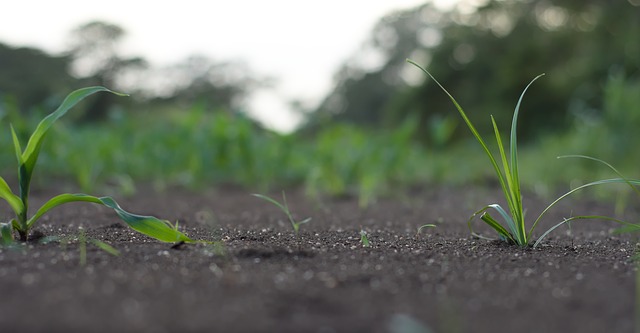The grass on your lawn will typically spread, or it will not spread. For the spreading grass, lawns are very resistant to damage but also very invasive. Not spreading makes other lawns easy to contain but less able to repair themselves. There are benefits to spreaders and non-spreaders.

Rhizomes: Spreading grasses may spread above ground or below, and underground spreading is done via rhizomes. A rhizome is a stalk of a root that is like an extra stem that grows horizontally under the soil. Once a rhizome spreads, it takes root in its new location and produces a vertical blade of grass and a new, independent plant.
Stolons: If you grass does its spreading out in the open air, it does it via stolons. Stolons are the daylight versions of rhizomes. The stolon is a stem from the original plant that takes root and becomes its own plant.
Tillers: Tillers do not belong to spreading grasses, but they offer a little spread for those grasses that don’t spread invasively. They are extra blades that come from the main shoot. This is how bunch grasses become fuller, but they don’t “spread” by the definition of the term.
How Does Your Grass Spread?
If you have a warm season grass like St. Augustine, Zoysia, Centipede, or Bermuda, then you definitely have stolons doing the spreading. In Zoysiagrass and bermudagrass, you’ll also get rhizomes. Tall fescue, the most common cool season grass, does not spread but does make tillers.
Does it Matter?
If you are considering types of grass to plant, then it is important to know how it will grow. If containment is an issue, a cool season grass may be a good option. However, you will have to overseed it occasionally to make sure it stays thick. If you opt for a warm season grass, you might also want to purchase an edger because that grass is going to creep.
Knowledge is Power
The biggest reason to understand how your grass grows is that it will help you to diagnose and treat problems. If you dig a hole in your yard to do some irrigation repair, your spreading grass will fill in nicely over any bare spots. If you have a cool season grass, plan on doing some seeding afterward. At the very least, this information should help people with tall fescue grass who are wondering why their yard isn’t filling in. For those people, it’s a good time to look into some seed.
Have questions about your lawn care?
Greenfeet Lawncare Provides Service to the Following Areas.
770-619-2929
North Fulton, East Cobb, Cherokee, Forsyth Counties - including Alpharetta, Canton, Cobb, Cumming, Dunwoody, Gwinnett, Johns Creek, Marietta, Milton, Roswell, Sandy Springs